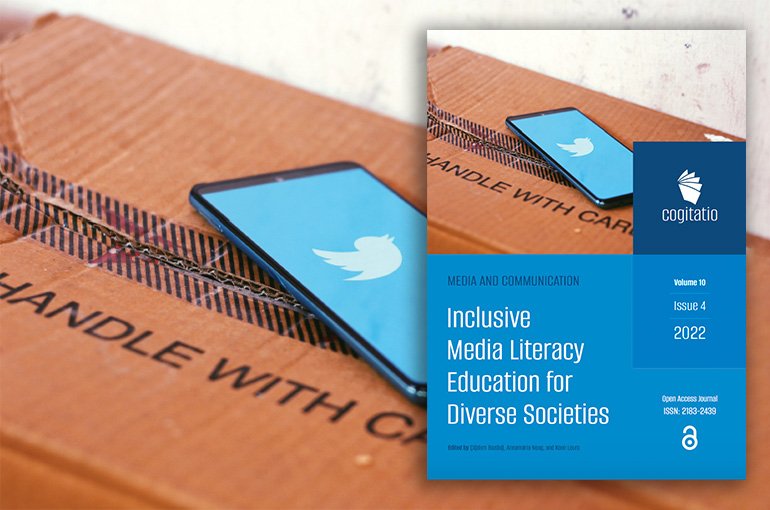‘Inclusive Media Literary Education for Diverse Societies’, Media & Communication
Koen Leurs et al.

On 28 December, a thematic issue titled ‘Inclusive Media Literacy Education for Diverse Societies’ was published in the Open Access international peer reviewed journal Media & Communication. In this issue editors Koen Leurs, Çigdem Bozdag (University of Groningen), and Annamária Neag (Charles University) explore how media education can contribute to a more diverse society and how it can empower and give a voice to marginalized groups.
Media education addressing cultural diversity, inclusion, exclusion, and social justice
‘Inclusive Media Literary Education for Diverse Societies’ presents a selection of fifteen papers first presented at the Inclusive Media Education for Diverse Societies workshop, held at the University of Groningen on 11 and 12 November 2021, organised by Leurs, Bozdag, Neag, and Alex P. Smit (University of Groningen).
This thematic issue brings together thirty contributors who provide critical and alternative approaches to media education addressing the issue of cultural diversity, inclusion, exclusion, and social justice.
Four main take-aways
There are four main take-aways from the special issue. First, an awareness of a plurality of voices, perspectives, and understandings of media literacy proliferate, which demand us researchers to be explicit in positioning ourselves as we produce knowledge on media literacy.
Second, media literacy is not an instrumental, neutral domain, rather (critical) media literacy offers means to promote civic engagement and political activism. Third, a commitment to understanding media literacy education as providing the fundament to fulfil potentialities and promote critical thinking, needed for digital citizenship, participation, and a profound engagement with otherness, social injustices and inequalities.
And final, media literacy should equip people with the necessary skills to consume, scrutinize and produce a variety of (digital) media content, alongside stimulating ethics of engagement and listening, needed to foster intercultural dialogue and understanding.

